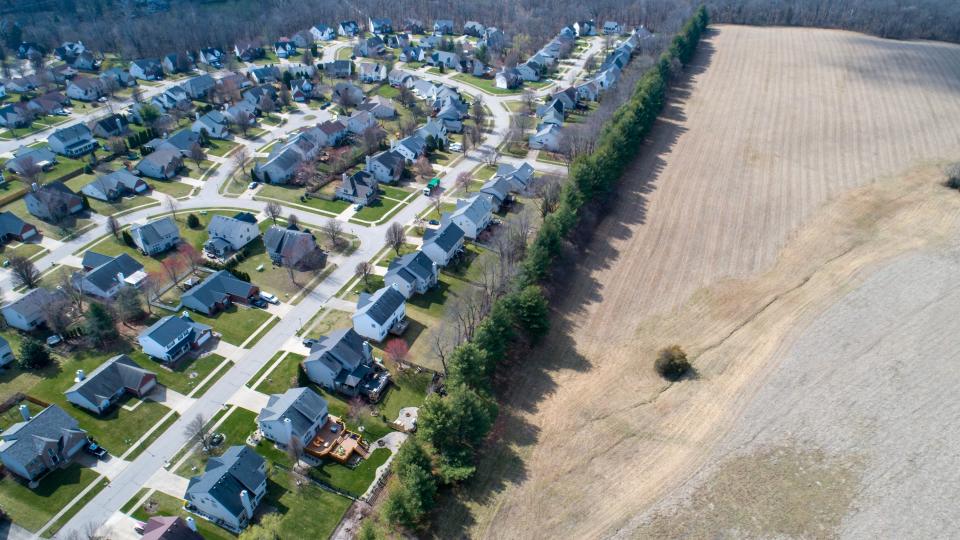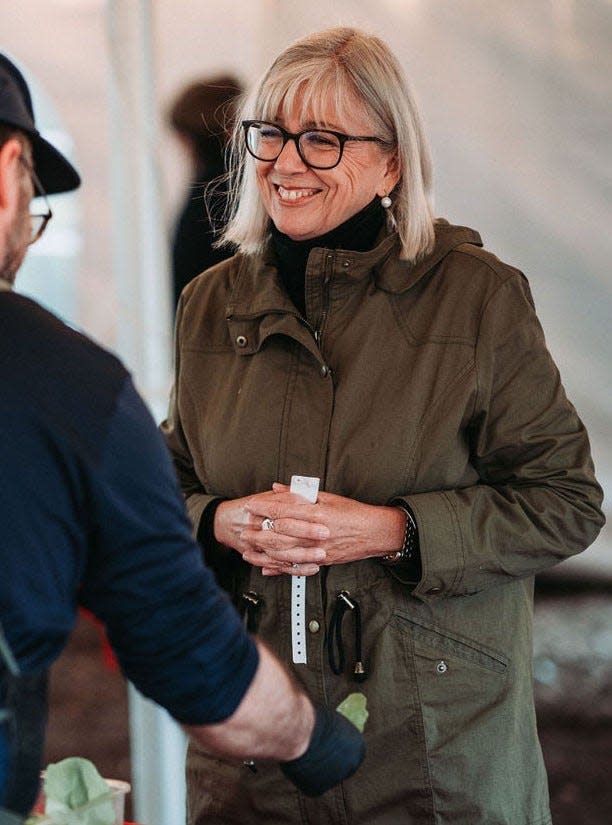We need local food systems. This historic tobacco program may be the answer we need.
I am grateful to Connor Giffin for the recent story in the Courier Journal titled Kentucky losing famers and farmland at a rapid clip – at what cost? It is a sad story. Extremely sad because the story is being told 20 years after the end of The Burley Tobacco Growers Cooperative and 50 years after my father and others first sought to bring attention to what was happening to rural Kentucky. The article called attention to Henbit as a “harbinger of spring.” What those purple fields are is a sign of bad land use.
It is important to make a distinction between The Burley Tobacco Program and the tobacco industry. For many years before the Program started, farmers in Kentucky were taking their chances every year when they took their crop to be sold. My grandfather, John Berry, Sr., remembered his father coming home from the sale of his 1906 tobacco crop with nothing to show for a year’s work. He never forgot seeing farmers leave the warehouses in tears. He would tell us years later that he thought then, “If I can do something about this, I will.”
The Burley Tobacco Program showed the industry the way
After receiving a law degree he came home to Henry County to farm, practice law, and devote his life to advocating for small farmers. He was the principal author of the New Deal agricultural legislation that dealt with tobacco – The Burley Tobacco Program. It brought stability to thousands of small farmers in Kentucky. The members of the co-op agreed to limits (allotments) in return for a support price based on parity. (Over production and resulting low prices is the singular cruelty of industrial agriculture.) The tobacco industry hated the Program because it required them to pay farmers fairly.
It is important to say that I am not advocating for the return of tobacco. I am speaking for the principles of the Program. I am speaking for something between the farmer and the marketplace. I am answering Tom Vilsack’s question in Mr. Giffin’s article. “Is there a better way?”

Who is he asking after 12 years as Secretary of Agriculture?
If he is asking me then here it is: The USDA should abandon its cheap food policy that has been its idea, along with its idea, as reported in The Courier Journal in 1967, that the country’s biggest farm problem was a surplus of farmers. The tragedy reported in this article has had such causes.
First, the tornado. Then, the invasive plants. How can Cherokee Park bloom again?
It is a shame to have to quote old news but to make sense of where we are now, we must understand something about what got us here. And there has been no repudiation of these policies. What has happened to rural Kentucky, and rural America, has been destruction by design. It has not been inevitable. The system has been raw materials sold at the lowest possible price into the corporate economy: coal, timber, food, with destruction left behind.
Tobacco was the economic backstop for diversified farming
Farms passed from generation to generation along with knowledge of how to farm. This democratic program allowed the possibility that farmers could move from farm tenancy to ownership. The lived memory of what the Program meant to rural Kentucky and the stories I grew up with has shaped my life and the work of The Berry Center. We have used the Program as a model for Our Home Place Meat, an initiative that insures young farmers in Henry County a fair price for their well-raised cattle.
We are making good farming pay a fair wage. We are making perennial agriculture profitable. We are working on an economy that will support farmers who have farmed all their lives and give new farmers an economic foundation on which to begin. To build a population of good farmers will be a monumental task. But our past gives us the pattern we need.

The urban/rural divide may be the most ruinous in our country. For over 30 years a good deal of work has gone into an attempt to connect Louisville with surrounding farmland. What we have to show for that work are farm markets and CSAs. We need entrepreneurial efforts to be supported, but this kind of agriculture doesn’t create a large enough market for farmers statewide and requires access to urban markets.
We need a local food system. We need to reconnect what never should have been disconnected. We must see that the most secure food supply for Louisville would come from the countryside closest to it and for it to be dependable there must be an infrastructure to support it.
We, along with our, distributors, What Chefs Want and processors, Trackside Butcher Shoppe, have done this with Our Home Place Meat.
Mary Berry is an 8th generation rural Kentuckian, farmer and Executive Director of The Berry Center in New Castle, KY.
This article originally appeared on Louisville Courier Journal: Kentucky is losing farms, but it can save them. Old model shows how
